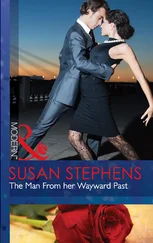1 ...7 8 9 11 12 13 ...20 At last he found her alone at the window, one of three large sash windows with great swags that had grown dusty and old now, the ornate gold piping frayed along the seams. He went to the window next to where she was standing, amazed that she had not noticed him yet, much less recognized him. It occurred to him that she might be avoiding him. The way she studied the sidewalk outside seemed almost a deliberate turning away, and in one respect this gave him hope. That he’d had an impact on her, that she hadn’t forgotten the bunker in Con Thien, what passed between them in those minutes, what he thought had passed. If she wanted to avoid him, then it must be that she remembered, that she knew the power of their first, extraordinary meeting when she fled like Cinderella from the ball, holding her helmet with one hand, her notebooks in the other. In his day dreams he had often entertained himself with that last image of her, running toward the jeep, leaping up on to the open bed. It seemed wholly at odds with the woman he saw now, in a dress that hugged her hips, her hair falling in a fan across her shoulders, and the contrast he found dazzling, exhilarating. He didn’t know if he dared talk to her.
He glanced through the window and saw army trucks and clusters of careening bicycles, people rushing from the first throes of evening rain. The pedicab drivers leaned into the motion as they worked. The kids traded money and sold things they’d found or scrounged, pens and card packs, pictures of naked girls, all of them getting soaked now, getting drenched. A boy in a T-shirt three sizes too small and a pair of underpants, nothing more, darted across the crazy street like a dog, trying to avoid being killed outright, selling cigarettes that nobody wanted to buy. It began to rain harder and his hair shined with it, his underpants dragged down his hips, his bald little legs splashed in puddles. At some point the boy looked up and saw Marc at the window and called out Wanna buy? Marc reached into his pocket and found a clump of notes, dropping a colorful bill down to the boy who stood with his hand stretched out, his chin to the sky, rushing one way, then another as the note floated, swooped and dived to the street below. It felt mean to have made him work so hard for the note, so he threw some change and the boy ran for it, too; other children, hearing the coins scattering on the pavement, started doing the same. A crowd gathered, rushing in from adjoining lanes, not just children but old men, teenage girls, all of them rushing now. A child with only one arm danced below the window trying to lift the coins from the road with her single outstretched hand. A round woman with long gray hair pushed a child to one side. They were all running for the coins, calling up, screaming for more. But the rain was fierce, banging down on to the steaming tarmac and bouncing up again, streaming down the edges of the road, soaking the clothes and hair of the people below and drowning out their voices.
Suddenly, a spear of lightning cracked across a piece of sky to the west and all the lights went out. The street went black as though it had disappeared altogether, like a stage across which the curtain has been drawn. Inside, too, the room, the party, was suddenly immersed in darkness. He glanced away from the street and into the sudden gray shadows of the hotel—he didn’t even know whose room it was—and looked across at the adjacent window, blinking, searching for Susan, but she was gone.
The lights stayed off but no one was alarmed. It was a city of precarious amenities. Water, light, access down a particular street or building, at a particular hour or a different one, were granted or not granted. One night, as the guest of an embassy official (someone he assumed to be a spook), he’d been in one of Saigon’s best French restaurants when a blackout had taken hold of several city blocks. The waiters hurried with hurricane lamps and table candles, reassuring the diners that all was well. They had a generator for the kitchen, the food would not be a minute delayed. The waiters carried small flashlights, like theater ushers, and set out a line of lanterns at the station where they brought orders. He and the official carried on with their meal, though the man seemed suddenly quite awkward, straining through the darkness to see the other restaurant guests, who paid no attention at all to the blackout. If anything, they seemed to enjoy it. Outside, the streets were lit by headlamps and starlight; while the restaurant, now cloaked in the candles’ amber glow, felt like a festive cavern. Everyone spoke more softly than before, as though the candles enforced a kind of secrecy, and Marc found himself having to drop his own voice, leaning across the table and into the cloud of light made by the flickering flame between him and the official, in order to hear the man speak. They carried on for a few minutes and then he saw the official’s face suddenly glaze over. He was staring into a small spray of flowers that had been on the table all the time but, until now, had gone unnoticed. They were tiny lavender buds, each one the size of a thimble, and they let off an unusually strong scent in relation to their small size. In an abrupt move, the official dropped his napkin on to the table. Let’s get out of here before someone takes us for a couple of faggots , he said, standing. He summoned the waiter for the bill, threw some money on the table. One of the waiters followed them out apologetically, suggesting that they at least finish their main course, but the official said, Wrap it up, give it to someone. He looked down at the plate of change the waiter had brought, rumpled bills on a saucer of white porcelain. To Marc, he said, They give you these dirty notes so you’ll leave them as a tip. Why should I give him all that? The place doesn’t even have working lights. Then he said, Come on, let’s get something to drink.
Marc remembered this now, standing in the darkened party, and it made him smile and cringe at the same time. He listened as someone bemoaned the dead stereo, the unexpected discontinuation of music. Laughter erupted from down the hall where the darkness was almost complete. The party guests, unable to contain themselves in the excitement of the abrupt night, moved in waves in one direction, then another, guided only by the momentary hiss of a lit match, the glow of cigarettes, the few penlights that passed from hand to hand like batons.
And then, just as he least expected it, she was by his side. He recognized her profile in the darkness, her nose, her chin, the shape of her hips in the dress. Her voice was new to him. He’d never before heard her speak. I know you , she said, standing at his shoulder. He took her in, straining his eyes to see her more clearly. He remembered how in the bunker a few weeks earlier the darkness had obscured her, and how she’d arrived with the unexpected tide of light from the sergeant’s lamp. He could picture her face then, streaked with mud, a few scratch marks, her eyes frozen in fear, pupils wide, her mouth open, unsure whether even to take in a breath. He reminded himself that he had once held her, crying, in his arms. It gave him confidence to remember that, to tell himself that she had found solace this way.
She said, I wasn’t sure, at first, and then I thought maybe—I don’t know—that you wouldn’t want me to bother you.
The rain was heavy now, the drops splattering the floor near the window, open for the necessary breeze it allowed into the crowded room. He saw a fat raindrop land on her bare arm, another on her shoulder, and it was all he could do not to reach out and wipe them away. You’re getting wet , he said, leading her from the window. Lightning came and went; with every bolt she became temporarily visible, the opaque whiteness making her skin seem pale, almost translucent. Then she seemed to disappear altogether as his eyes adjusted to the dark wake of the vanished electricity. He was fascinated by her presence, he couldn’t say why. He had anticipated this meeting for weeks, guessing at where he might see her, and under what circumstances. He’d been careful how he asked after her, allowing himself to display no greater interest than he would in any new journalist he might see in the field, or at least not much more. He knew her name, who she worked for, a few places she had been recently. He looked at her now, wondering whether to tell her how he had sought her out, how her memory had dogged him. They had met in such honest isolation, both of them terrified, neither hiding nor able to hide anything about themselves. He had never admitted, nor would admit, to that kind of fear, certainly not to another journalist. But she’d been there, witnessed it, given him the gift of her trust as she clung to him in the bunker. Now she said I know you , and it seemed so right and appropriate a greeting. She did know him, had seen a part of him he did not allow himself to dwell upon; he had considered at that time the possibility that they would suffer a direct hit, that the bunker would disintegrate and take them with it, that he would die with her there. He’d thought of that very thing and he knew, too, that she had.
Читать дальше












